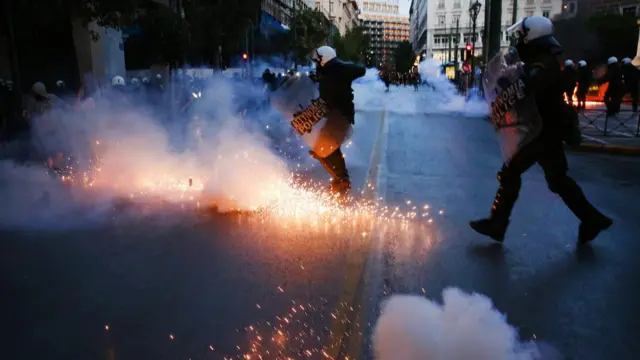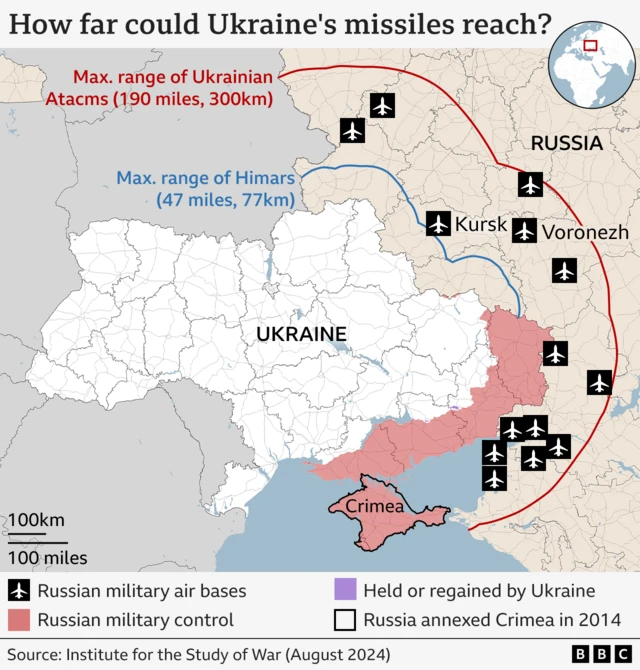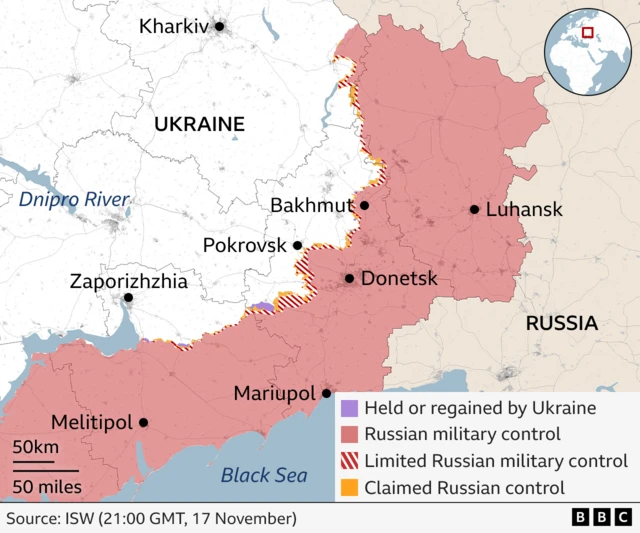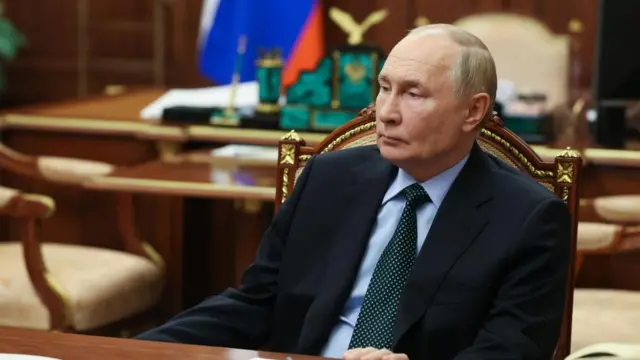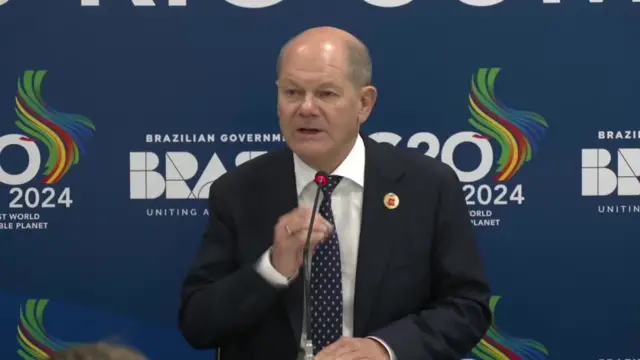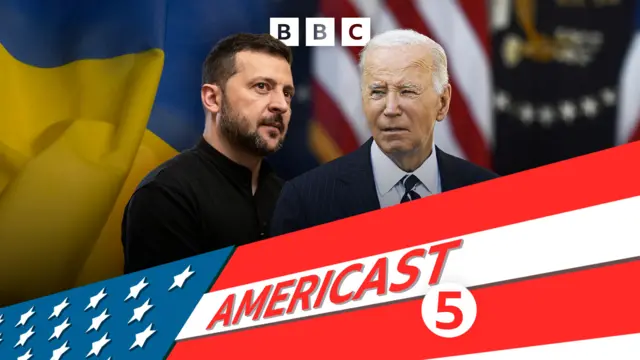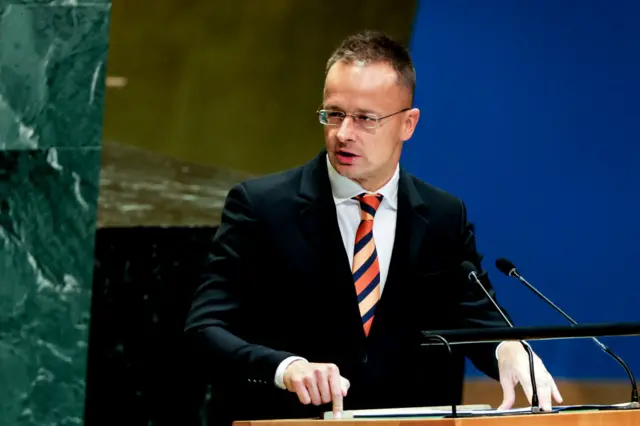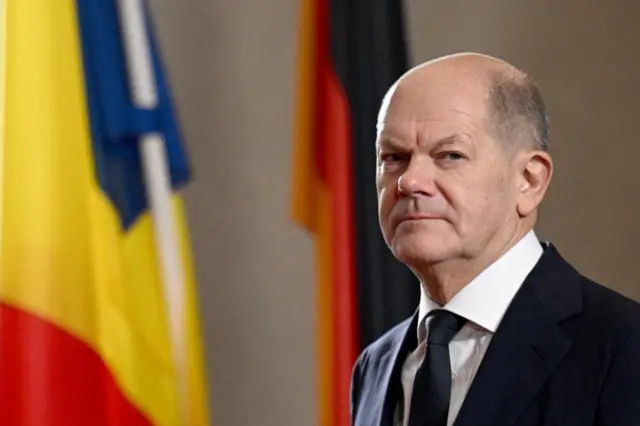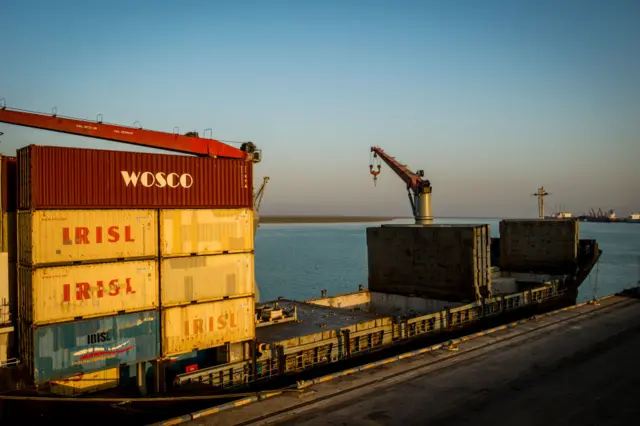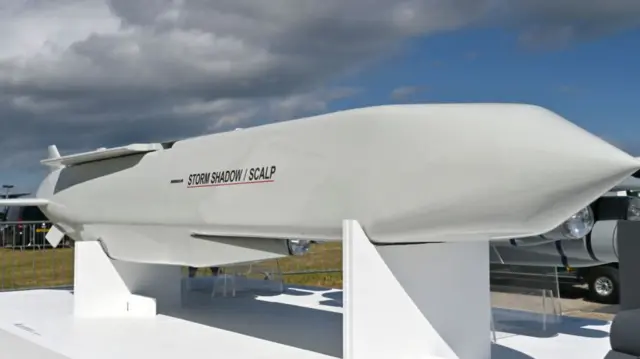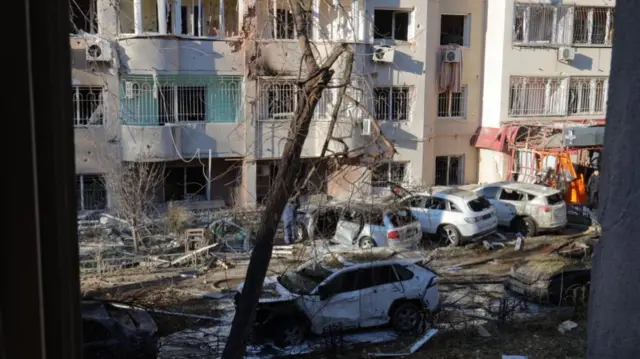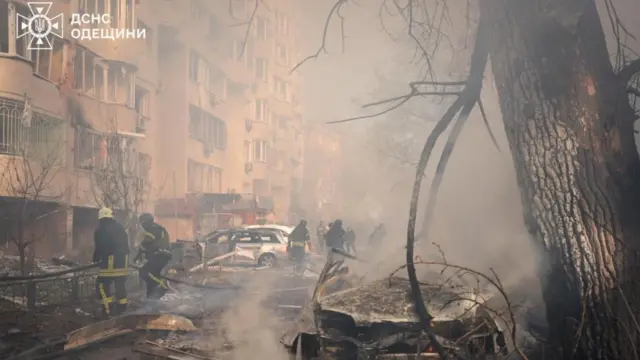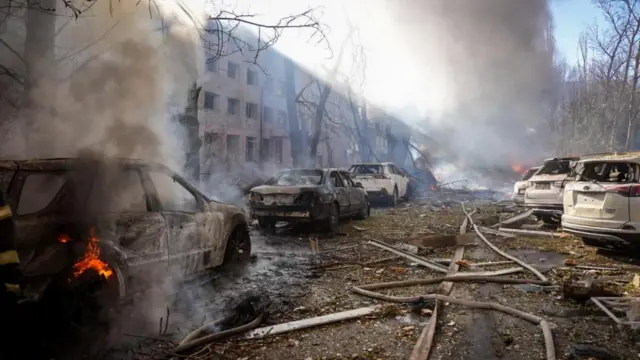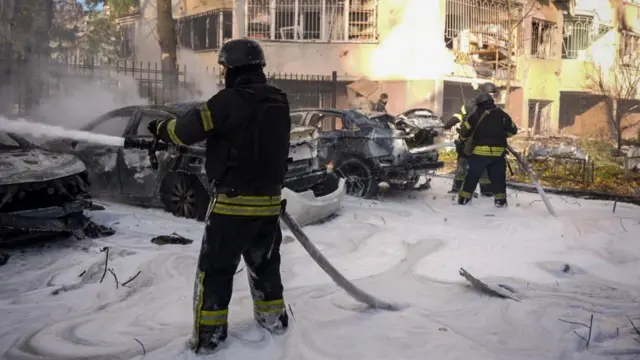Russia vows 'appropriate response' if Ukraine uses US long-range missilespublished at 21:15 Greenwich Mean Time 18 November
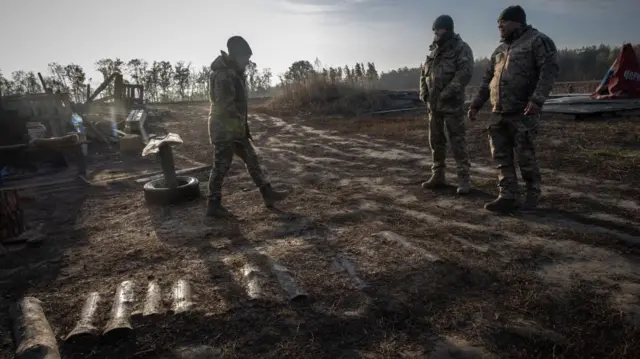 Image source, EPA
Image source, EPABefore we go, we've rounded up some key details from our reporting today to give you a full picture of the conflict as it stands:
- Biden told world leaders at the G20 summit, in Brazil, that his administration "strongly supportsUkraine's sovereignty and territorial integrity", in the aftermath of his reported authorisation of Ukraine's use of US long-range missiles
- Russia has promised an "appropriate" response if Ukraine does choose to use long-range missiles to strike its territory. United Russia MP Maria Butina said the US is "actually pushing the world to a very dangerous red line"
- Not all nations are on board with Biden: Hungary, Slovakia and Italy have voiced their opposition to the decision
- Other Western powers have yet to follow Washington's lead. France and the UK have maintained that Storm Shadow missiles supplied by them can only be used on targets in Ukraine
- A Russian missile strike on an apartment building in the Ukrainian port city of Odesa killed at least 10 people and injured 47 others, according to local authorities. In Sumy, a city in Ukraine's northwest, 11 people were killed and 63 injured in a Russian missile strike on a residential area
We're now ending our live coverage, there is more on this story here and you can find more content from across the BBC in our post below.
